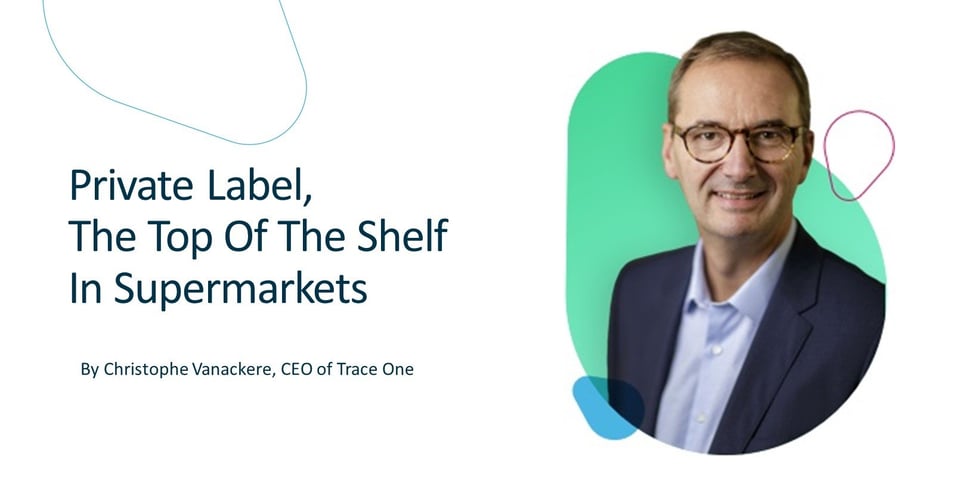
Private Label: The Top of the Shelf in Supermarkets
|
Private label
Posted By:
Trace One
"Private label products are now the headliners of mass retail. They offer retailers brand visibility and new added value,"
said the head of Trace One, the world leader in connecting retailers and private label manufacturers, in an article published on the specialized website Economie Matin.
According to Christophe Vanackere, after decades focused on marketing major national brands, retailers are now "developing their own product lines that allow them to differentiate themselves. This strategy "has become crucial for the image of major retailers, but also for the development of their business (and) allows them to build customer loyalty through an identified and increasingly innovative brand".
The importance of private labels for the actors of mass distribution, and the success of these brands is explained largely by a progressive and continuous rise in the range of the private label products during the last few years. Far from being pale copies of the national brands, these players have made the choice to follow innovation and originality, "in order to differentiate products of quality which are as branded private label".
Consumers increasingly trust private labels because they identify them with the local stores where they have been going for many years, and with the traceability of production, particularly with local manufacturers. Up against big national brands, private labels today embody proximity and transparency.
According to Trace One's CEO, this evolution of private labels is rooted in the changing consumption patterns in France and other countries in Europe like Germany, Spain or in the UK, where consumers "have been making a profound return to more sustainable, ethical and healthier consumption patterns for the past decade. These are all elements centered on innovation, well-being, and local products, which "are at the heart of the rise of private labels".
Clearly, the rise of private labels goes hand in hand with a growing concern among the consumers about the quality and origin of what they consume. Christophe Vanackere considers traceability to be one of the main advantages of private label, which allows retailers to "guarantee consumers the origin and control of the products offered, and above all to communicate on this in (their) stores".
Several figures seem to indicate that the private label revolution should last and even accelerate in the years to come. After a growth of 2 to 3% over the last few years, private label sales have increased by 6 to 8% in 2021 (an acceleration largely, but not solely, due to the health crisis). A virtuous growth because it benefits all the players in the food industry (mostly French), from manufacturers to retailers, including suppliers of raw materials and fresh produce. The penetration rate of private labels in Europe is currently 35% but should exceed 50% within 3 or 4 years.
"There is still a lot of room for improvement in all markets," concluded Christophe Vanackere.